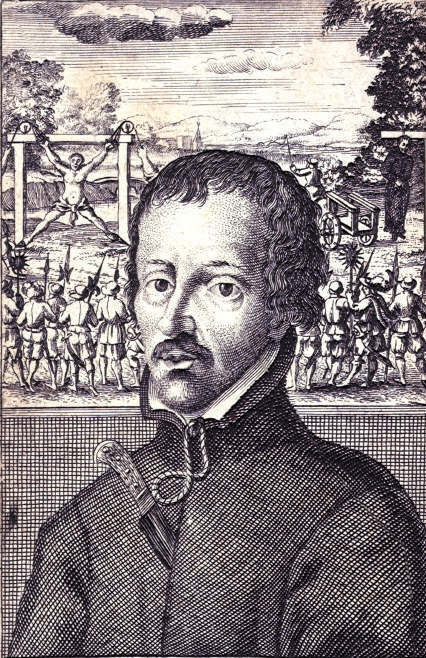1581
Execution of Edmund Campion. When Catholic Europe realized that England’s Queen Elizabeth I meant to put her country in the Protestant camp, all manner of attempts were made to reverse that decision. Nobles from the conservative north of the country rose in rebellion. Plots were launched to kill Elizabeth and put a Catholic ruler, possibly Mary Queen of Scots, on the throne. In 1570 the pope sanctioned Elizabeth’s overthrow in a bull entitled Regnans in Excelsis. Catholic clergymen fled to the Continent and established English-speaking seminaries to train the next generation of priests. All of this convinced the English government that Catholicism and treachery were synonymous. After a decade of winking at the refusal of Catholics to worship in the Anglican fashion, Elizabeth cracked down on the beleaguered minority that clung loyally to Rome. Especially harsh were the laws against the presence of Catholic priests who had smuggled themselves back into England.
One of the most prominent of those men was Edmund Campion, born 1541. He was a brilliant student at Oxford early in the reign of Elizabeth and was ordained a priest in the Church of England. His doubts about Protestantism grew to the point that he left his country and was received into the Catholic church in France at an English college run by Jesuits. Studies in Rome led to his becoming a Jesuit priest in 1578. Two years later the Jesuits began to smuggle English-language missionaries back into England. They were instructed to avoid any political involvement or pass judgement on Elizabeth’s right to the throne and were to concentrate on bolstering the Catholic community who had to worship in secret.
With great boldness (and perhaps little wisdom) Campion published two challenges to the English church, printed on clandestine presses. The first was known as Campions Brag, announcing the Jesuit mission and denying any treasonous intent, and the second was a Latin tract Decem Rationes (“Ten Reasons”) attacking the Anglican settlement. This public challenge led the government to put a great effort into finding him. Within a month of his arrival he was arrested and sent to the Tower of London. There he was both tortured, wooed with promises of freedom and high position, and allowed to debate Protestant theologians.
In 1581 he was put on trial for political crimes and plotting the overthrow of the Queen. On December 1 of that year he was hanged and disemboweled along with two other Catholic priests. He was canonized in 1970.
